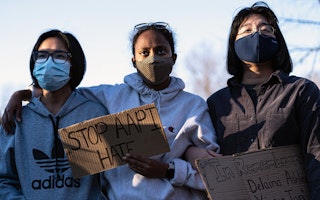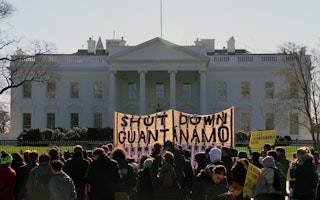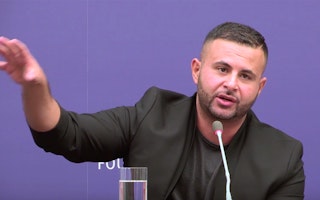Rebuilding and Resilience: 20 Years Since 9/11
By Laleh Ispahani
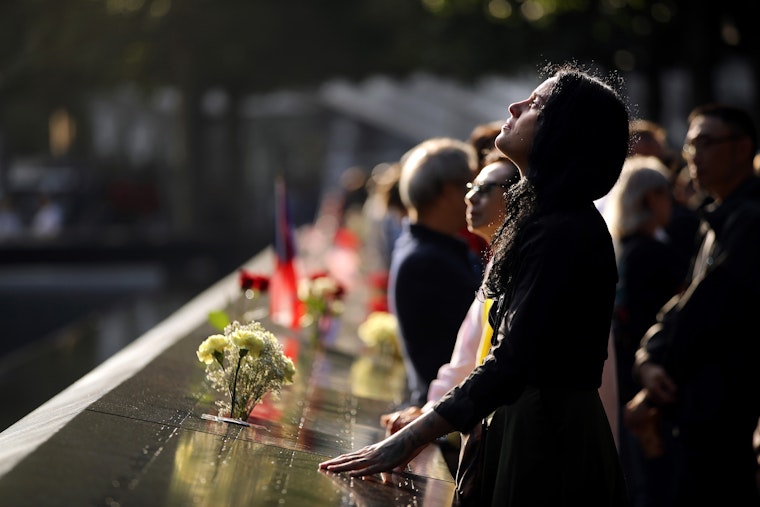
Every person on Earth should be able to look up at a bright blue sky free of fear and with the security to dream. As the world reflects on the #20YearsSince the 9/11 attacks, commemorations will appropriately focus on those who lost loved ones on that fateful day. What is more difficult is commemorating a lost ideal, or the dehumanizing cost to an entire community. That day is etched in the heart of Muslims in America and the world over as the start of two decades of surveillance, false imprisonments, and threats by our neighbors and our governments.
In the two decades since the horrific attacks, the Open Society Foundations have fearlessly advocated for and invested millions in sustaining ideals that made me proud to become a citizen of this country. Even in the bleakest days, Open Society stood steadfast in the defense of freedom and democracy, with the wisdom to listen first to impacted communities in the face of this dual threat. The Foundations supported those combating a new security state, countering government overreach, opposing torture, and empowering communities under attack. We salute the courage and resilience of human rights activists, community leaders, whistleblowers, faith allies, and other leaders who have struggled to uphold human dignity, fundamental freedoms, and justice in the face of enormous obstacles.
I am proud to work for this foundation that has empowered me to elevate partners on the front lines of protecting these ideals. Two decades after the attacks, I take heart hearing our partners recall the distance traveled since that tragic day, and affirm our commitment to them as they continue the hard work that still lies ahead.

Wa’el Alzayat of Emgage, which works to promote civic engagement in Muslim American communities
“9/11 hit Muslim Americans twice. Our country was attacked and then our faith was blamed. We’ve been reclaiming our narrative ever since. More work lies ahead, but we are on our way.”
Satjeet Kaur of the Sikh Coalition, a Sikh American civil rights group founded in response to a wave of hate on the night of 9/11
“Muslims, Sikhs, and far too many other communities effectively suffered the trauma of 9/11 not once, but twice. First, we shared in the same horror as every American during the attacks. Then, we had to fear for ourselves and loved ones in the face of a wave of backlash, bigotry, and bias. In the 20 years since, we have continued to persevere against hate and discrimination through solidarity and advocacy.”
Nina Fernando of Shoulder to Shoulder, which works to train and empower faith leaders to address anti-Muslim bigotry
“As we mark 20 years since September 11, 2001, Shoulder to Shoulder remains committed to directly engaging faith communities to counter the problem of anti-Muslim discrimination and violence in the United States in order to advance our vision of a society where all people, no matter their faith or background, are treated with dignity. The responsibility of countering anti-Muslim discrimination cannot fall on Muslims alone if we are going to make any change on this issue. It takes each and every one of us in all our diversity to work together across faith and cultural lines, to build a nation that lives up to its ideals.”
Linda Sarsour of MPower Change, a Muslim-led social and racial justice organization
“It has been a painful 20 years for Muslims here and abroad as we continue to defend our rights and fight back against government policies that have criminalized and targeted the communities we love. It has also been 20 years of building power, resilience, and solidarity amongst other marginalized communities giving us the fortitude and purpose to fight together. We are no longer alone.”
Farhan Latif of El-Hibri Foundation, which seeks to equip Muslim leaders and their allies to build inclusive communities
“The events of 9/11 shook all Americans to our core. As a student who became president of my college Muslim Students Association on 9/11, I also experienced and witnessed firsthand the racism and Islamophobia in the aftermath of the horrific events of that day. It prompted deep introspection for my community and my country.
Today I serve as the president of a foundation focused on inclusion. In reflecting on where we are 20 years later, I am struck by our collective resilience. I have witnessed the tremendous growth in the social sector’s ability to respond to racism, resurgent hate crimes, and Islamophobia. I have seen our communities build intersectional movements, where partnerships across lines of difference flourish. This resilience and growth within our communities will benefit us as a whole as we collectively seek to build a more inclusive and pluralistic society.”
Ari Radcliffe-Greene, 26, a member of September 11 Families for Peaceful Tomorrows and nephew of Donald Freeman Greene, passenger aboard United Flight 93
“I am now 26 years old, which means I was only six when 9/11 occurred. I remember it vividly, however. It was a terrible, tragic, and eye-opening situation, which changed my life forever. But I am the last generation with such firsthand recollection of 9/11. People old enough to vote, drink, and go to war now have no memory of the attacks that September, or weren’t even alive.
They do not remember the world coming together. They do not remember what it felt like when we were lied to about Iraq. Most know little about Guantanamo Bay. Twenty years later, we need to think about their story and how we can tell them ours. People don’t all know us. People forget about 9/11. Therefore, as the anniversary of the attack’s approaches, as the world once again turns their eye, the most important, most vital thing we need to think about is how to pass our own stories to them so that these stories can inform their own.”
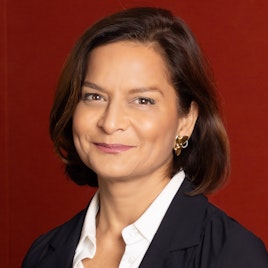
Laleh Ispahani is managing director of Programs at the Open Society Foundations.
